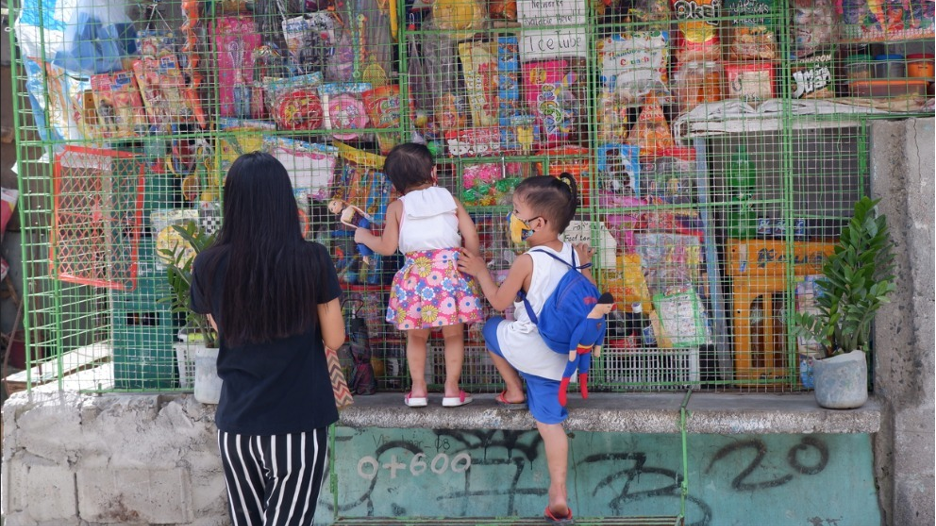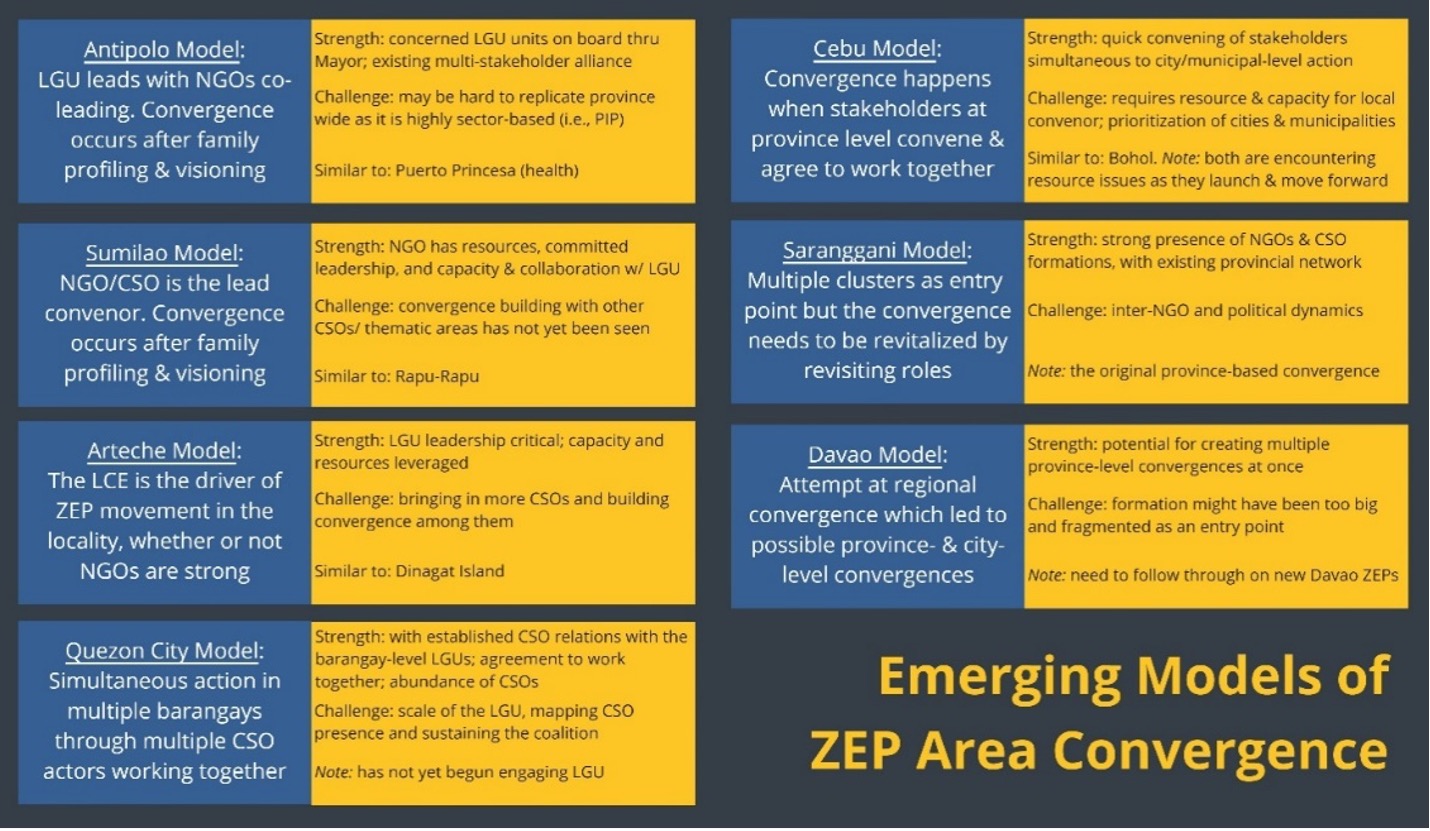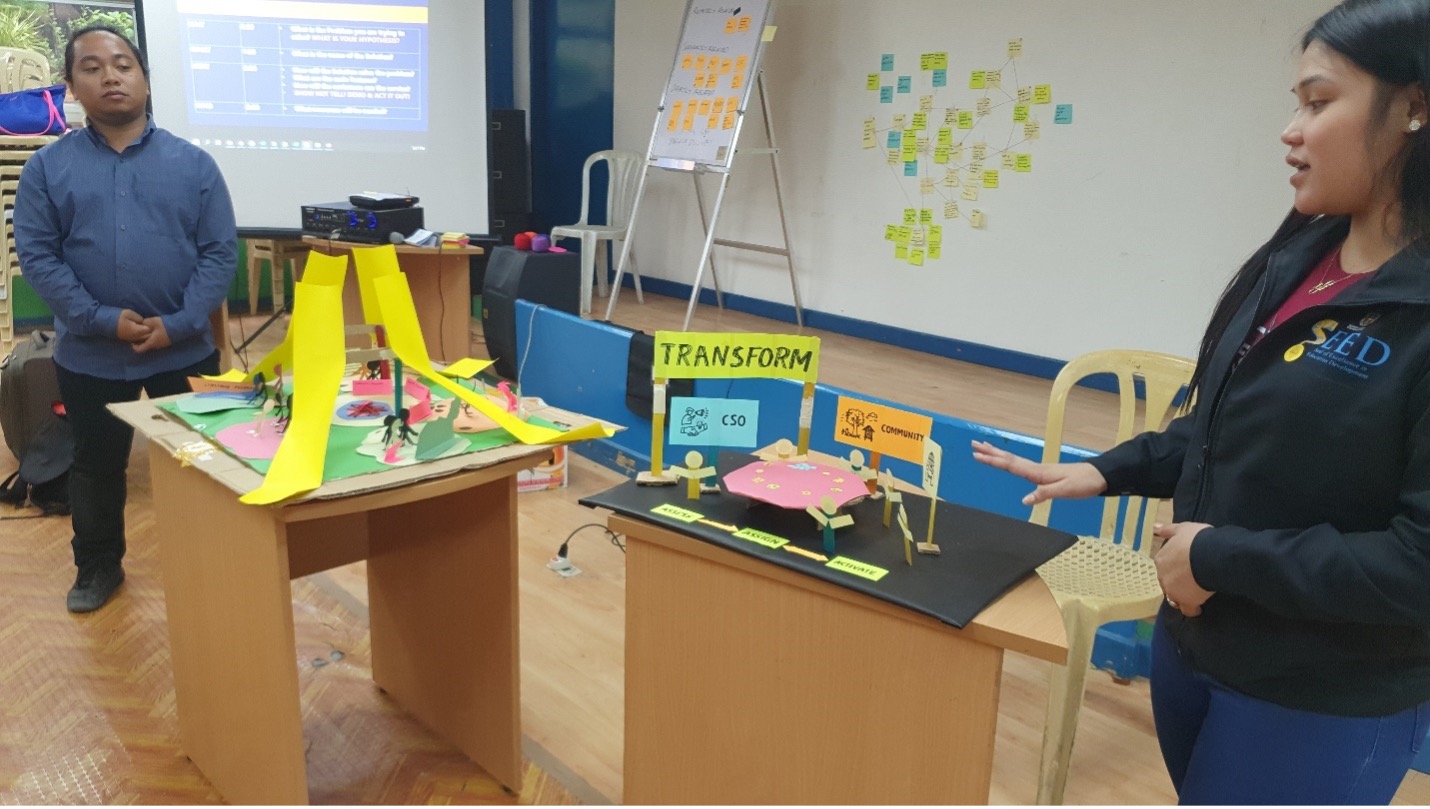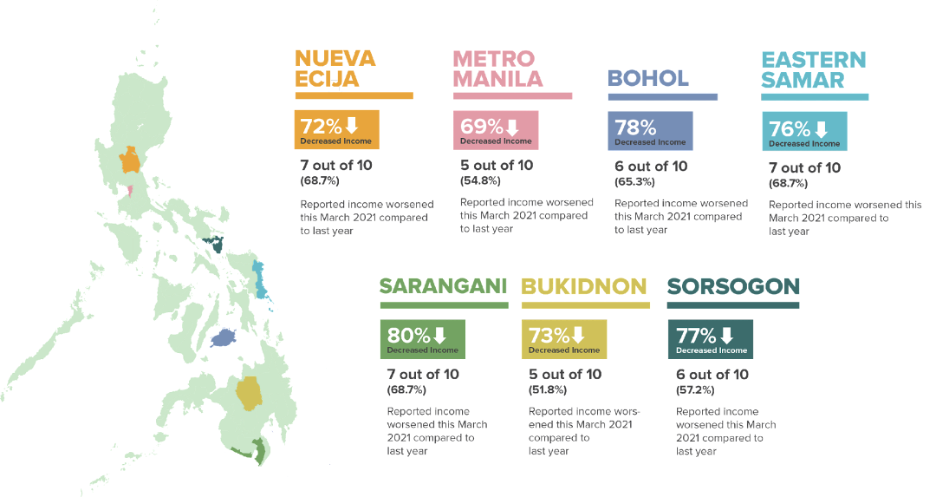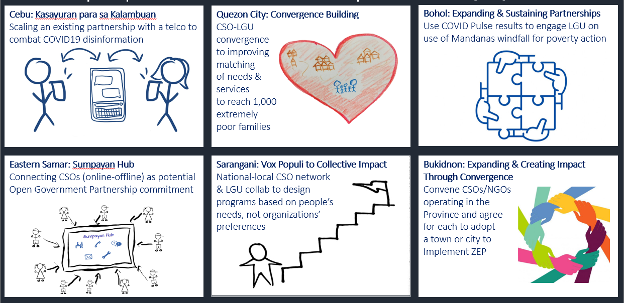By Francis Capistrano, Head of Experimentation
Local Convergence for Zero Poverty: Experimentation on Collective Action with ZEP PH 2030
October 19, 2021
Photo by the author in Pinagbuhatan, Pasig sometime in between ECQs
To commemorate International Day to End Poverty, this is the story of UNDP PH Accelerator Lab’s two-year collaboration thus far with the Zero Extreme Poverty Philippines 2030 (ZEP 2030) to transform local convergences as vehicles for poverty reduction through multi-stakeholder collaboration.
The Coronavirus Disease 2019 (COVID19) pandemic has eroded the Philippines’ recent gains in poverty reduction. From 2015 to 2018, about five million individuals (about a million families) have been lifted above the income poverty threshold. The pandemic is likely to have dragged them back to being poor. This is what we face with less than a decade left to meet the Sustainable Development Goals (SDGs).
The current milieu requires society to rethink how poverty should be tackled.
That is a big question, and big questions tend to lead to grand, sweeping statements. We in the Philippines will certainly hear more proposed panaceas in the run-up to the national elections in May 2022: ayuda (aid), trabaho (jobs), kabuhayan (livelihood), and other solutions. These have been promised in the past. What assures us that these will work this time? To paraphrase one of my favorite economics professors, “your bleeding heart is not enough to make your solution work.”
Poverty is multidimensional: a complex problem that must be approached systemically. To state the painfully obvious, no single solution will be enough. Solving it requires concerted action from all sectors from society; not just nationally but more so at the local level. Even from—perhaps especially from—sectors that have been at loggerheads.
Is it even reasonable to imagine them sitting together to plot the end of poverty?
To the Zero Extreme Poverty Philippines 2030 (ZEP2030) coalition, this is not only reasonable but also necessary. This coalition of 140 civil society organizations (CSOs) have adopted the target of emancipating 1 million extremely poor families from poverty through collective action. ZEP2030 and UNDP Philippines, through its Accelerator Lab (ALab), have been collaborating to design and test a portfolio of approaches to localized, targeted, and convergent poverty action.
ZEP’s Pivot to Local Convergence
Before the pandemic, ZEP2030 had decided to go “all-in local” as it attempted to accelerate its progress. This is to be done through local convergences: envisaged to be vehicles for poverty reduction in their localities by facilitating tighter collaboration among development actors: not only among national and local non-government organizations (NGOs) but also with local government units (LGUs), business, and other sectors.
Early convergence work, such as in Antipolo City and Cebu province, showed promise in bringing new energy to the movement. But what made these convergences tick? Each had unique characteristics (see below) that were shaped not only by their strengths and weaknesses but also by their unique starting points and their opportunities for scale.
Different models, rather, starting points for ZEP local convergence crafted in 2019.
Maximizing the potential of these local convergences requires celebrating their diversity.
Rather than impose an ideal process or standards for doing local convergence, ZEP2030 instead thought that it could empower variations in the practice. Instead of “manualizing” procedures and practices, the movement thought of offering lean guidance backed by an arsenal of tools and options that each local convergence could draw from and appropriate for their context.
ZEP2030 and ALab further imagined how this toolkit might look like before the lockdowns struck in 2020. With the ZEP Cebu convergence, they held the first ZEP Talyer: a dialogue format that made use of a mishmash of tools to understand complex issues (system mapping), find grassroots solutions (our homegrown Saliklakbay), and concretize ideas (prototyping). Ongoing work on data innovation was also presented, hoping that it could serve as a discussion piece on how to create a common agenda for action for the local convergence.
Two paper prototypes of engagement strategies devised by ZEP Cebu convergence members (informed by the system mapping posted at the back)
These tools were used not only to better understand the situation in Cebu but also to gain insight for the rest of the movement. The discussions in Cebu focused on how local governance was both central to addressing local poverty and the cause of problems (like poor services and corruption) that, in turn, lead to poverty. For the movement-at-large, the Cebu experience validated the “all-in local” hypothesis: that engaging local government is inevitable. But it also emphasized that the underlying assumptions—the cohesion of local movements, inter-sector dynamics, and the face of poverty itself—will be different across localities.
Local Convergence under the Pandemic
Coming from the Cebu pilot, ZEP2030 was poised to initiate new province- and city-level convergences. Unfortunately, plans were thwarted by the imposition of lockdowns in March 2020.
Physically but not spiritually curtailed by the pandemic, ZEP2030 immediately sought ways to assess the condition of the poor communities and families that they seek to serve. ZEP2030 and UNDP ALab, in collaboration with startup AI4Gov, launched COVID Pulse PH. This innovative survey is deployed through a messenger chatbot that is socialized through the community networks of ZEP2030 as well as of the Philippine Rural Reconstruction Movement.
Three waves of the survey have been implemented since May 2020. Wave 1 and wave 2 focused on Metro Manila and Metro Cebu, which were the epicenters of the pandemic. Wave 3 expanded the coverage to six provinces—Bohol, Eastern Samar, Bukidnon, Sarangani, Nueva Ecija, and Sorsogon—to investigate the pandemic’s ripple effects across the country.
All three waves confirmed the movement’s worst fears: COVID19 affected the poorest the most.
View more data insights on the COVID Pulse PH data dashboard
A more extensive piece is forthcoming on the results of COVID Pulse PH, particularly on how recovery can be designed considering the assets and aspirations of the poor. Pending that, one key insight from the survey must be highlighted. While the pandemic’s socioeconomic impacts burdened everyone, how they were affected differed across localities. Those in the locked-down metropolises were prevented from going to work, while those in the rural areas lost access to markets for their products and services.
The varied impacts of the pandemic only point to how crucial local responses will be in shaping a better normal for the poor. Are ZEP’s local convergences up to the task?
Parallel to the rollout of COVID Pulse PH Wave 3 in March this year, ZEP2030 conducted new Talyer sessions to revisit the movement’s direction and plot the way forward in the face of uncertainty. Facilitated by ALab, the sessions provided both national and local convenors of ZEP the opportunity to identify key issues faced by the movement and their possible future scenarios (to be discussed in a succeeding piece).
“Sprint teams” were also assembled around five initial local convergences of varying levels of maturity: Cebu, Bohol, Eastern Samar, Sarangani, and Quezon City. Each of them was tasked to conceive creative solutions to address the identified pain points of the local convenor—whether it was in combatting disinformation, or reimagining community organizing under the new normal—and to implement these creative solutions within the year.
Creative solutions produced by the local convergence sprint teams
These local convergences, plus Bukidnon, also crafted their respective sprint plans for convening local stakeholders to introduce ZEP2030 to them, engage LGUs on their recovery strategy, and in the process discuss and act upon the results of COVID Pulse PH in their localities. Key local convenors are members of local development councils of their LGUs and have brought ZEP2030’s goals into the agenda.
These local movements are still shellshocked by the pandemic and yet they continue to wage on for the 1 million extremely poor households that they aim to emancipate.
Citizens’ Voices and Aspirations for a Better Normal
Ending poverty under the “new normal” has become more challenging. First, the situation remains highly volatile: deadlier variants of the virus have emerged, and there have been signs that COVID19 could be a permanent pandemic. Second, society has been forced to adapt to a way of life that is dependent on technology: a necessity that not everyone can access.
A third issue, relevant to the Philippines at least, is the increased localization of socioeconomic recovery from the pandemic. Pandemic management become very localized, with the government adopting granular lockdowns as the main containment policy. Moreover, due to a landmark Supreme Court decision on revenue sharing—the ruling on the Mandanas-Garcia case—LGUs will gain a windfall of about PHP264 billion (US$5.2 billion) in 2022.
How might this windfall be leveraged as a war chest for eradicating poverty?
As we speak, LGUs are preparing their Devolution Transition Plans: not only on how they intend to use their Mandanas-Garcia windfall but also how they plan to absorb devolved functions from the national government. After the new local officials are elected in May next year, the local development planning processes will once again kick in. Socioeconomic recovery from COVID19 will likely figure into these plans. The big question is how to that these development plans lead to a better normal for the poor.
Each locality will have their own priorities and investment goals. What matters is that citizens’ voices and aspirations are reflected these plans; and that different sectors in society converge their actions around these. ZEP’s local convergences commit to at the least try new ways and engage unusual partners to #EndPoverty.
From some of the many Zoom meetings ZEP2030 had to hold to keep the momentum going through the pandemic.
### ###
This blog was originally uploaded in the author's blog:
https://kapicapistrano.wordpress.com/2021/10/18/local-convergence-for-zero-poverty/

 Locations
Locations